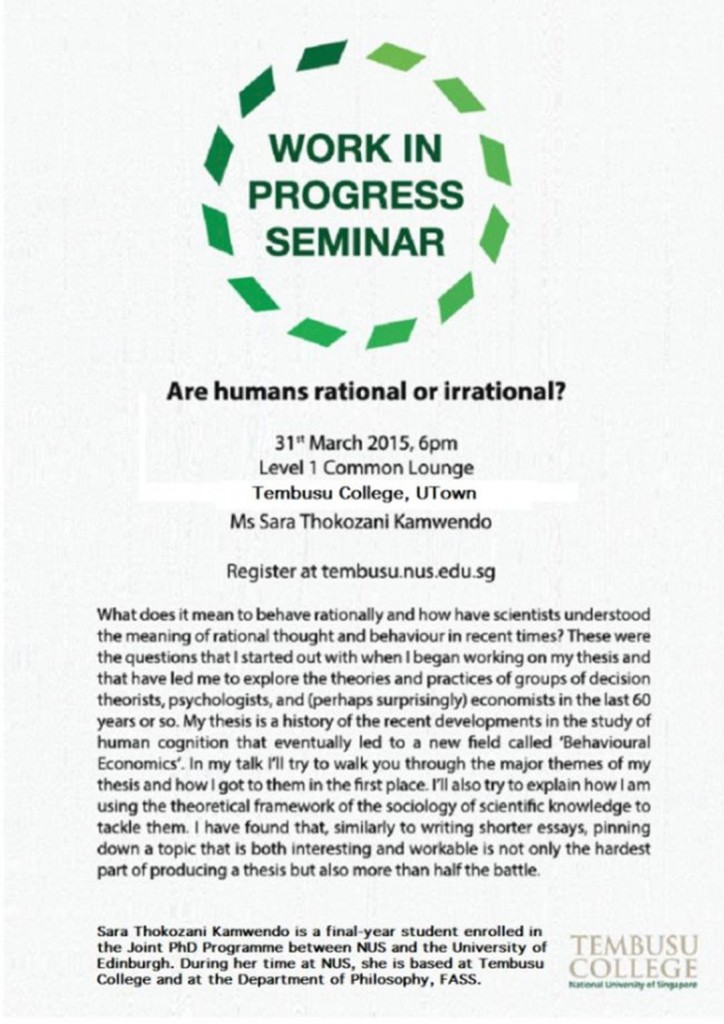In this talk I will argue that recent work in cognitive science and social psychology suggests that the sort of “cognitive control” that plays a central role in modern deontology and utilitarianism is actually a very weak foundation upon which to build an ethical education system. Human rationality is, in fact, not particular dependable in day-to-day situations, which means that a style of ethics that focuses on habits and automatic emotions, rather than reasoning styles, might be expected to do a better job of getting people to reliably act in an ethical manner. I will argue that the early Confucian emphasis on moral spontaneity, moral emotions, and the inculcation of virtuous habits is based upon a much more empirically defensible model of human cognition, portraying early Confucian virtue ethics as involving a kind of “time-delayed cognitive control.” Virtue ethics involves a system of ethical training that acknowledges (explicitly or not) the limitations of individual, in-the-moment cognitive control, and therefore designs a system of training regimes and ethical guidelines—themselves the products of cognitive control—which are to be internalized and automatized. Virtue ethics might this be seen as a clever way of getting around the limits of human cognitive control abilities, embedding higher-level desires and goals in lower-level emotional and sensory-motor systems. I will also argue that the specific features of Confucian virtue ethics—in particular, its emphasis on situation-sensitive training—avoid some of the weaknesses of traditional Western models of virtue ethics.
Philosophy Seminar Series.
Date: Thursday, 14 Mar 2013
Time: 2pm – 4pm
Venue: Philosophy Resource Room (AS3 #05-23)
Speaker: Edward Slingerland, Professor of Asian Studies and Canada Research Chair in Chinese Thought and Embodied Cognition, University of British Columbia, Canada
Moderator: Dr. Ben Blumson
About the Speaker:

Edward Slingerland is Professor of Asian Studies and Canada Research Chair in Chinese Thought and Embodied Cognition at the University of British Columbia, where he also holds adjunct appointments in Philosophy and Psychology. His research specialties and teaching interests include Warring States (5th-3rd c. B.C.E.) Chinese thought, religious studies (comparative religion, cognitive science and evolution of religion), cognitive linguistics (blending and conceptual metaphor theory), ethics (virtue ethics, moral psychology), and the relationship between the humanities and the natural sciences. His publications include Effortless Action: Wu-wei as Conceptual Metaphor and Spiritual Ideal in Early China (Oxford 2003), the Analects of Confucius (Hackett 2003), What Science Offers the Humanities: Integrating Body & Culture (Cambridge 2008), and Creating Consilience: Integrating the Sciences and Humanities (co-edited with Mark Collard, Oxford 2012), as well as numerous articles in top journals in a wide variety of fields. He is currently also PI on a large Canadian government grant on “The Evolution of Religion and Morality” and Director of the Cultural Evolution of Religion Research Consortium (CERC).

